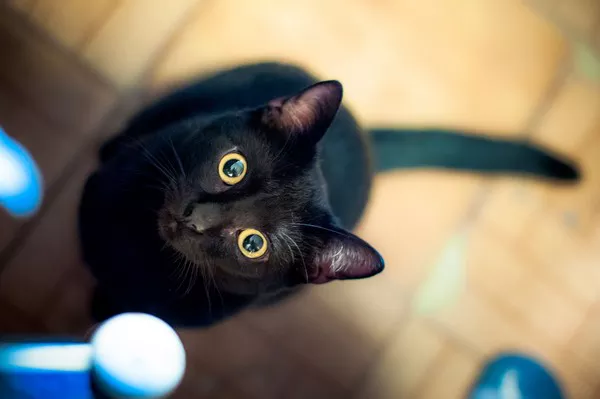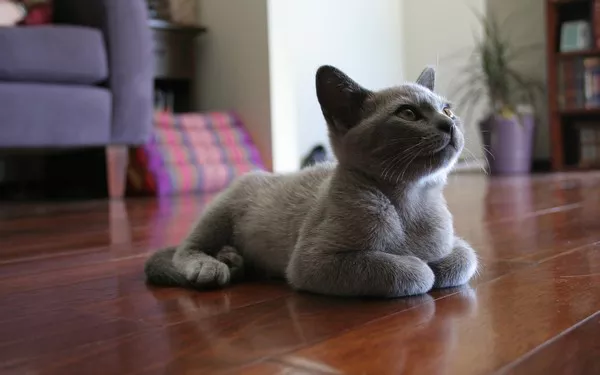Cats are cherished companions, known for their playful antics, soothing purrs, and affectionate nature. However, not all cat breeds are created equal when it comes to health. Some breeds are predisposed to a variety of genetic and health problems that can affect their quality of life and longevity. Understanding which cat breeds tend to have more health issues is crucial for potential cat owners, as it can influence decisions about breed selection, care, and long-term commitment. This essay will explore several cat breeds that are commonly associated with health problems, detailing the specific conditions they face and offering insights into how owners can manage these challenges.
The Importance of Understanding Cat Health
Why Focus on Health Issues?
Quality of Life: Health problems can significantly impact a cat’s quality of life. Chronic illnesses, pain, or discomfort can lead to behavioral changes and decreased enjoyment of life.
Financial Considerations: Veterinary bills for managing chronic health issues can accumulate quickly. Understanding breed-specific health risks can help prospective owners prepare for potential expenses.
Informed Pet Ownership: Knowledge of health predispositions allows potential cat owners to make informed decisions that align with their lifestyles and ability to provide proper care.
Preventive Care: Awareness of common health issues within certain breeds can encourage proactive health management, including regular veterinary check-ups and preventive treatments.
Factors Influencing Cat Health
Several factors can influence a cat’s health, including genetics, environment, diet, and lifestyle. While some breeds are genetically predisposed to specific health issues, other factors such as obesity, lack of exercise, and poor nutrition can exacerbate health problems.
Cat Breeds Prone to Health Issues
Persian Cats
Overview
Persian cats are renowned for their luxurious long fur and distinctive flat faces. While they are often described as gentle and affectionate, their unique physical characteristics come with several health challenges.
Common Health Problems
Brachycephalic Airway Syndrome: The flat facial structure of Persians can lead to breathing difficulties. This condition can cause snoring, labored breathing, and increased susceptibility to respiratory infections.
Polycystic Kidney Disease (PKD): This genetic condition leads to the development of cysts in the kidneys, which can result in kidney failure. Regular veterinary check-ups and monitoring are crucial for early detection.
Dental Issues: Persians are prone to dental problems, including periodontal disease, due to their jaw structure. Regular dental care is essential to maintain oral health.
Preventive Measures
- Regular veterinary check-ups to monitor kidney health.
- Maintaining a healthy weight to reduce respiratory strain.
- Implementing a dental care routine, including professional cleanings and at-home care.
Maine Coon Cats
Overview
Maine Coons are one of the largest domesticated cat breeds, known for their friendly disposition and tufted ears. Despite their robust appearance, they are susceptible to specific health issues.
Common Health Problems
Hypertrophic Cardiomyopathy (HCM): This genetic condition causes thickening of the heart muscle, which can lead to heart failure. Regular veterinary check-ups and screenings are recommended.
Hip Dysplasia: Maine Coons can suffer from hip dysplasia, a condition where the hip joint does not fit properly into the hip socket, leading to arthritis and pain.
Spinal Muscular Atrophy (SMA): A genetic disorder affecting the spinal cord’s motor neurons, leading to muscle wasting. While it is not life-threatening, it can impact mobility.
Preventive Measures
- Regular veterinary check-ups, including heart screenings.
- Maintaining a healthy weight to reduce stress on joints.
- Providing a balanced diet and encouraging exercise.
Siamese Cats
Overview
Siamese cats are known for their striking appearance and vocal personalities. Their unique looks come with specific health predispositions.
Common Health Problems
Respiratory Issues: Siamese cats can suffer from respiratory problems due to their elongated heads and narrow nasal passages.
Dental Problems: They are prone to dental issues, including gingivitis and periodontal disease, requiring regular dental care.
Amyloidosis: This condition involves the abnormal buildup of amyloid protein in organs, particularly the liver, leading to organ dysfunction.
Preventive Measures
- Regular veterinary dental check-ups and cleanings.
- Monitoring respiratory health, especially in environments with allergens.
- Routine blood tests to check liver function.
Scottish Fold Cats
Overview
Scottish Folds are known for their distinctive folded ears and sweet temperament. However, their unique ear structure can lead to several health issues.
Common Health Problems
Osteochondrodysplasia: This genetic condition affects cartilage development, leading to joint and bone issues, including arthritis.
Ear Infections: The unique shape of their ears can predispose Scottish Folds to ear infections, necessitating regular cleaning and monitoring.
Preventive Measures
- Regular veterinary check-ups to monitor joint health.
- Routine ear cleaning and monitoring for signs of infection.
- Providing a balanced diet to support overall health.
Ragdoll Cats
Overview
Ragdolls are known for their affectionate nature and striking blue eyes. They are large, gentle cats but are susceptible to health issues.
Common Health Problems
Hypertrophic Cardiomyopathy (HCM): Ragdolls are predisposed to HCM, which can lead to heart failure. Regular screenings are crucial for early detection.
Urinary Tract Issues: Ragdolls may be prone to urinary tract problems, including crystals and infections, often related to diet and hydration.
Preventive Measures
- Regular veterinary check-ups, including heart screenings.
- Encouraging water intake and providing a balanced diet to prevent urinary issues.
- Monitoring for signs of distress or discomfort.
Sphynx Cats
Overview
Sphynx cats are known for their hairless appearance and affectionate nature. While they are unique and charming, they also face specific health challenges.
Common Health Problems
Skin Issues: Due to their lack of fur, Sphynx cats are prone to skin problems, including rashes, infections, and sunburn. Regular bathing and skin care are necessary.
Hypothermia: Without fur, Sphynx cats are more susceptible to temperature fluctuations and may require extra warmth in cooler environments.
Heart Disease: Like many breeds, Sphynx cats can develop hypertrophic cardiomyopathy.
Preventive Measures
- Regular skin care, including bathing and moisturizing.
- Providing a warm environment and avoiding extreme temperatures.
- Routine veterinary check-ups, including heart health monitoring.
Abyssinian Cats
Overview
Abyssinians are known for their short, ticked coats and playful nature. While generally healthy, they can be prone to specific health issues.
Common Health Problems
Renal Amyloidosis: This condition involves the buildup of amyloid protein in the kidneys, leading to kidney failure.
Dental Issues: Abyssinians can also be prone to dental problems, requiring regular dental care.
Preventive Measures
- Regular veterinary check-ups, including kidney function tests.
- Dental care, including professional cleanings and at-home dental hygiene.
Burmese Cats
Overview
Burmese cats are known for their striking appearance, affectionate nature, and playful personality. However, they are prone to certain health issues.
Common Health Problems
Craniofacial Abnormalities: Some Burmese cats can have facial structure issues that lead to respiratory problems and dental malocclusions.
Diabetes: Burmese cats are at a higher risk for diabetes, particularly if they are overweight.
Hyperthyroidism: This condition, characterized by an overproduction of thyroid hormone, is more common in older Burmese cats.
Preventive Measures
- Regular veterinary check-ups to monitor weight and metabolic health.
- Maintaining a healthy diet and encouraging exercise.
- Monitoring for signs of increased thirst or urination, which can indicate diabetes.
Norwegian Forest Cats
Overview
Norwegian Forest Cats are known for their thick, water-repellent coats and friendly personalities. Despite their robust appearance, they can face health issues.
Common Health Problems
Hypertrophic Cardiomyopathy (HCM): Like many larger breeds, Norwegian Forest Cats are at risk for HCM, which can lead to serious heart complications.
Hip Dysplasia: This breed can also suffer from hip dysplasia, leading to arthritis and mobility issues.
Preventive Measures
- Regular veterinary check-ups, including heart screenings.
- Maintaining a healthy weight to reduce stress on joints.
- Encouraging physical activity through play and engagement.
Devon Rex Cats
Overview
Devon Rex cats are known for their unique curly coats and playful nature. While they are generally healthy, they can be prone to certain health issues.
Common Health Problems
Skin Issues: Their unique coat can lead to skin problems, including rashes and infections, requiring regular care.
Hypertrophic Cardiomyopathy (HCM): Devon Rex cats can also be predisposed to HCM, necessitating regular heart screenings.
Preventive Measures
- Regular skin care, including bathing and moisturizing.
- Routine veterinary check-ups, including heart health monitoring.
General Health Management for Cats
Regular Veterinary Check-Ups
Regular veterinary visits are crucial for all cats, regardless of breed. Routine check-ups can help detect health issues early, allowing for timely intervention and treatment.
Balanced Diet
Providing a balanced diet is essential for maintaining a cat’s health. Consult with your veterinarian to determine the best diet for your cat’s age, weight, and health needs. High-quality cat food, appropriate portion sizes, and fresh water are vital components of a healthy diet.
Weight Management
Maintaining a healthy weight is crucial for preventing obesity-related health issues. Regular exercise and playtime can help keep your cat active and engaged.
Dental Care
Dental health is often overlooked in cats but is crucial for overall well-being. Regular dental cleanings, both professional and at-home, can prevent periodontal disease and other dental issues.
Environmental Enrichment
Providing a stimulating environment is essential for a cat’s mental and physical health. Engage your cat with toys, climbing structures, and interactive play to keep them active and happy.
Conclusion
Understanding which cat breeds are prone to health issues is vital for potential and current cat owners. By being aware of the common health problems associated with specific breeds, owners can take proactive steps to ensure their feline companions lead healthy, happy lives. Regular veterinary care, a balanced diet, weight management, and environmental enrichment are all essential components of feline health management.
While no breed is without health risks, informed decisions and proactive care can significantly enhance a cat’s quality of life. By prioritizing health and well-being, cat owners can enjoy the companionship and joy that these beautiful animals bring into their lives.
Related topic:



























